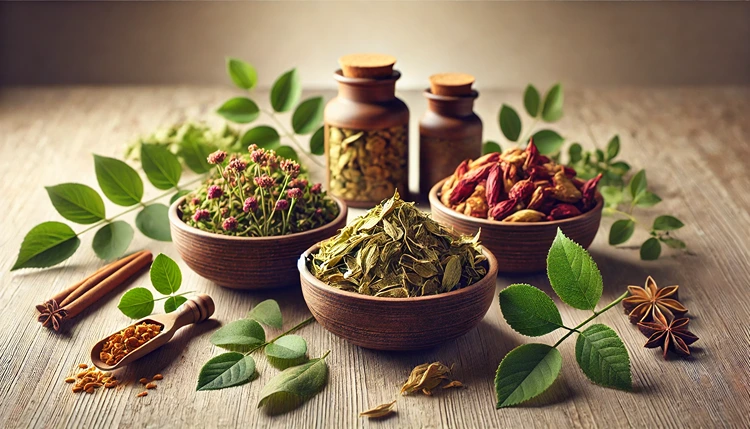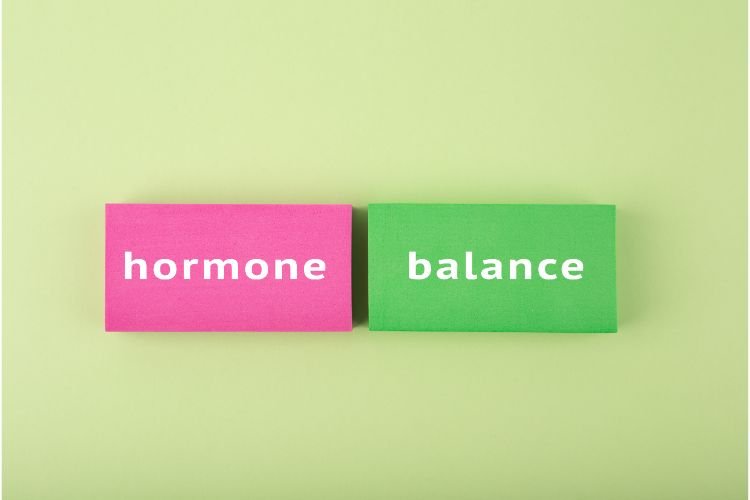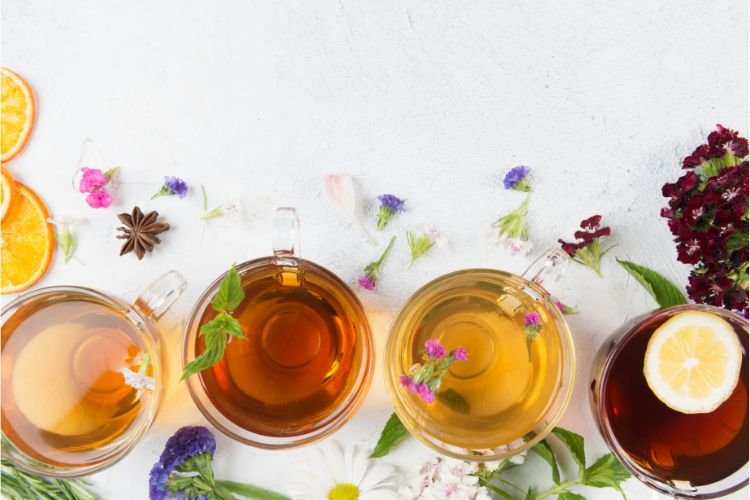
How Seaweed Improves Thyroid Function and Supports Hormonal Health
When it comes to natural remedies for thyroid function and hormonal health, seaweed stands out as a powerhouse ingredient. The thyroid gland plays a crucial role in regulating metabolism, growth, and hormone production. However, many people may not realize that proper thyroid function depends on certain nutrients, especially iodine. This is where seaweed comes in. Seaweed is one of the richest natural sources of iodine, a trace element that the thyroid gland requires to produce essential hormones like thyroxine (T4) and triiodothyronine (T3).
The thyroid’s role in hormonal health is crucial because it helps balance various systems in the body. When the thyroid isn’t functioning optimally, it can cause problems ranging from sluggish metabolism to fatigue and even reproductive issues. Eating seaweed can ensure your body gets the iodine it needs to support the thyroid, thus promoting balanced hormone levels.
How Does Seaweed Help Prevent Thyroid Disorders?
Thyroid disorders like hypothyroidism and hyperthyroidism are increasingly common. These conditions occur when the thyroid gland either produces too little or too much hormone, leading to a range of health problems. Consuming iodine-rich seaweed can help prevent some of these thyroid disorders by keeping the thyroid balanced and functioning correctly.
For example, hypothyroidism, where the thyroid is underactive, is often linked to iodine deficiency. This can lead to symptoms like fatigue, weight gain, and mood swings. Incorporating seaweed into your diet can give your body the iodine it needs to prevent these symptoms. On the other hand, hyperthyroidism, an overactive thyroid, can sometimes be managed by maintaining balanced iodine levels in the body.
What Kinds of Seaweed Are Best for Thyroid Function?
Not all seaweeds are created equal when it comes to thyroid support. The type of seaweed you choose can significantly affect how much iodine you get, and this, in turn, affects your thyroid health.
- Kelp: Kelp is one of the most iodine-rich types of seaweed. A small amount can provide your body with a huge boost of this essential mineral. However, it’s important to consume kelp in moderation, as excessive iodine intake can also lead to thyroid imbalances.
- Nori: The seaweed commonly used in sushi, nori, contains lower amounts of iodine compared to kelp, making it a safer option for more frequent consumption while still supporting thyroid health.
- Wakame: This seaweed, often found in soups and salads, is another good option. It contains a moderate level of iodine and is packed with other essential nutrients that contribute to overall hormonal balance.
How Does Seaweed Contribute to Hormonal Balance Beyond the Thyroid?
While iodine’s role in thyroid function is well-known, seaweed offers benefits for other hormones too. The nutrients in seaweed, such as omega-3 fatty acids, magnesium, and vitamins, support various hormonal systems throughout the body.
For instance, seaweed contains lignans, which are compounds that can help regulate estrogen levels. In women, imbalanced estrogen levels can lead to issues like PMS, menopause symptoms, and even increased risks of certain cancers. By including seaweed in your diet, you may be able to naturally balance estrogen levels and alleviate some of these hormonal imbalances.
Helpful Hint:
If you’re new to seaweed, start small! Try adding a sprinkle of nori to your salads or using wakame in your soups. This way, you can gradually introduce it into your diet without overwhelming your palate.
How Does Seaweed Support Reproductive Health?
Seaweed’s hormone-balancing properties extend to reproductive health as well. For both men and women, maintaining a balanced hormonal environment is crucial for fertility and reproductive wellness. The iodine found in seaweed ensures proper thyroid function, which directly influences reproductive hormones such as estrogen, progesterone, and testosterone.
Additionally, the rich content of antioxidants and minerals in seaweed helps reduce inflammation in the body, which can contribute to improved reproductive health. For men, seaweed has been linked to better sperm quality and motility due to its ability to support overall hormonal balance. For women, seaweed consumption may ease menstrual irregularities and improve reproductive health by regulating estrogen levels.
Is There a Risk of Too Much Iodine from Seaweed?
While iodine is essential for thyroid function and hormonal health, too much of it can lead to problems. Excessive iodine intake may overstimulate the thyroid, leading to conditions such as hyperthyroidism. The key is moderation. Most people can safely consume seaweed a few times a week, but it’s best to consult with a healthcare provider if you have a thyroid condition.
Keep in mind that seaweeds like kelp contain significantly more iodine than nori or wakame. If you’re consuming kelp, be mindful of portion sizes to avoid overloading your body with iodine.
Stats:
One gram of dried kelp can contain anywhere from 150-2500 micrograms of iodine, depending on its variety and where it was harvested. The recommended daily intake of iodine is around 150 micrograms for most adults, meaning a small amount of kelp goes a long way.
Can Seaweed Help with Hormonal Imbalances Caused by Stress?
Chronic stress is one of the leading causes of hormonal imbalances in modern life. It leads to elevated cortisol levels, which can disrupt thyroid function and other hormones such as estrogen and testosterone. Seaweed’s high nutrient content can help reduce the effects of stress on the body by providing essential vitamins and minerals like magnesium and B vitamins, which help regulate stress hormones.
Additionally, seaweed contains adaptogens, which are substances that help the body adapt to stress and promote a balanced hormonal state. By including seaweed in your diet, you may help your body better manage stress and reduce the harmful effects it can have on your hormonal health.
Helpful Hint:
Pair seaweed with other stress-reducing foods like nuts, seeds, and whole grains to enhance its hormone-balancing benefits. Together, they provide a strong foundation for maintaining overall hormonal health, especially in stressful times.
How Does Seaweed Improve Metabolism Through Thyroid Support?
One of the primary ways seaweed contributes to hormonal health is by improving metabolism, a function largely regulated by the thyroid. When your thyroid is functioning optimally, it produces hormones that help regulate the body’s metabolic rate, ensuring that your cells have enough energy to perform their functions effectively.
Seaweed, especially iodine-rich varieties like kelp, plays a critical role in enhancing metabolic activity by providing the thyroid with the essential nutrients it needs. When the thyroid has adequate iodine, it can produce the hormones T3 and T4 in the right amounts. These hormones directly influence how efficiently your body converts food into energy, how quickly you burn calories, and how well you maintain a healthy weight.
People struggling with a sluggish metabolism or difficulty maintaining a healthy weight often have thyroid-related issues. In these cases, introducing seaweed into the diet could help improve metabolism naturally by supporting proper thyroid function.
Does Seaweed Aid in Detoxification?
Another hidden benefit of seaweed is its ability to support detoxification, which indirectly influences hormonal health. Our bodies are constantly exposed to toxins—whether from the environment, processed foods, or everyday products. Over time, these toxins can disrupt hormonal balance, especially affecting the thyroid and adrenal glands.
Seaweed contains natural compounds called alginates that bind to heavy metals and toxins, helping the body remove them. By aiding in the detoxification process, seaweed reduces the burden on the liver and kidneys, which can otherwise interfere with hormonal balance. This detoxifying property makes seaweed an excellent addition to any diet aimed at improving overall health and supporting hormonal function.
Moreover, seaweed’s rich supply of antioxidants fights oxidative stress, another factor that can disrupt hormones. By neutralizing free radicals, seaweed helps protect cells from damage and promotes a more balanced hormonal environment.
Can Seaweed Help Balance Cortisol Levels?
Cortisol, known as the “stress hormone,” plays a vital role in managing how your body responds to stress. However, prolonged high levels of cortisol can cause hormonal imbalances, leading to fatigue, weight gain, and even thyroid dysfunction. Fortunately, seaweed contains adaptogenic properties that help regulate cortisol levels and promote relaxation.
In particular, the polysaccharides found in seaweed have been shown to support adrenal function and reduce the body’s stress response. By helping to balance cortisol levels, seaweed can contribute to overall hormonal harmony. This is particularly beneficial for those experiencing chronic stress, which can wreak havoc on the body’s endocrine system.
Incorporating seaweed into your diet can help mitigate some of the adverse effects of stress on your hormones, promoting better balance and overall well-being.
How Much Seaweed Should You Eat for Optimal Thyroid and Hormonal Health?
While seaweed offers a wealth of benefits for thyroid function and hormonal health, moderation is key. Since seaweed is incredibly rich in iodine, consuming too much of it could lead to thyroid imbalances. The general recommendation is to eat small amounts of seaweed a few times a week, especially if you’re consuming iodine-rich varieties like kelp.
Nori, wakame, and dulse are milder options that can be eaten more frequently without the risk of iodine overload. If you’re adding seaweed supplements to your diet, always follow the dosage instructions and consult a healthcare provider, especially if you have a pre-existing thyroid condition.
Comparing Iodine Content in Different Types of Seaweed
| Seaweed Type | Iodine Content (per gram) | Recommended Frequency | Additional Nutrients |
|---|---|---|---|
| Kelp | 1500-2500 micrograms | 1-2 times per week | Magnesium, calcium, iron |
| Nori | 10-20 micrograms | Daily or frequently | Protein, vitamin A, vitamin C |
| Wakame | 100-150 micrograms | 3-4 times per week | Calcium, omega-3 fatty acids |
| Dulse | 50-150 micrograms | 3-4 times per week | Potassium, fiber, iron |
How Can You Add Seaweed to Your Diet for Thyroid Support?
There are plenty of delicious and easy ways to add seaweed to your meals. From snacks to salads, seaweed is a versatile ingredient that can easily fit into a variety of dishes. Here are some ideas to get you started:
- Sprinkle nori: Add roasted nori sheets as a topping for salads, rice bowls, or soups.
- Seaweed snacks: Many health stores offer ready-to-eat seaweed snacks made from nori or kelp. These are convenient options for getting your seaweed fix.
- Wakame in soups: Use wakame in miso soup or as an addition to broths for a nutrient boost.
- Kelp noodles: Kelp noodles are a low-calorie, iodine-rich alternative to traditional pasta. Pair them with your favorite sauces for a satisfying meal.
These simple additions can help you reap the benefits of seaweed without drastically changing your diet. Remember, small and consistent amounts are more effective and safer than overloading on iodine all at once.
Helpful Hint:
Want a quick iodine boost? Try adding a sheet of roasted nori to your lunchtime wrap or sandwich. It’s a simple and delicious way to support your thyroid while adding flavor to your meals.
Does Seaweed Help with Hair and Skin Health?
The benefits of seaweed don’t stop at internal hormonal health. Seaweed is also rich in vitamins and minerals that support hair and skin health, both of which are influenced by hormonal balance. The antioxidants in seaweed, like vitamins C and E, help protect skin from free radical damage, which can otherwise lead to premature aging and hormone-related skin conditions.
For hair, seaweed provides essential nutrients that promote growth and reduce hair thinning. Hair loss is often linked to thyroid dysfunction, so by supporting the thyroid with iodine-rich seaweed, you may notice improvements in hair strength and volume.
Additionally, seaweed’s anti-inflammatory properties can help soothe skin conditions like acne and eczema, which are often exacerbated by hormonal imbalances.
FAQs
Wrapping Up
Seaweed offers a natural and effective way to improve thyroid function and support hormonal health. Its rich iodine content helps the thyroid regulate essential hormones like T3 and T4, contributing to better metabolism, energy levels, and overall well-being. Beyond the thyroid, seaweed’s antioxidants and nutrient profile also assist in balancing other hormones, reducing stress, and improving reproductive health.
Incorporating seaweed into your diet a few times a week can deliver these powerful benefits without overwhelming your system. From supporting estrogen levels to helping manage stress hormones like cortisol, seaweed offers an accessible and delicious way to promote hormonal harmony. Remember to start small and consult with a healthcare provider if you have any thyroid concerns, especially if you are already on medication.
Adding seaweed to your meals is an easy, tasty, and beneficial step toward improving thyroid function and hormonal balance. Whether through soups, salads, or snacks, seaweed provides a holistic approach to enhancing your health naturally.










